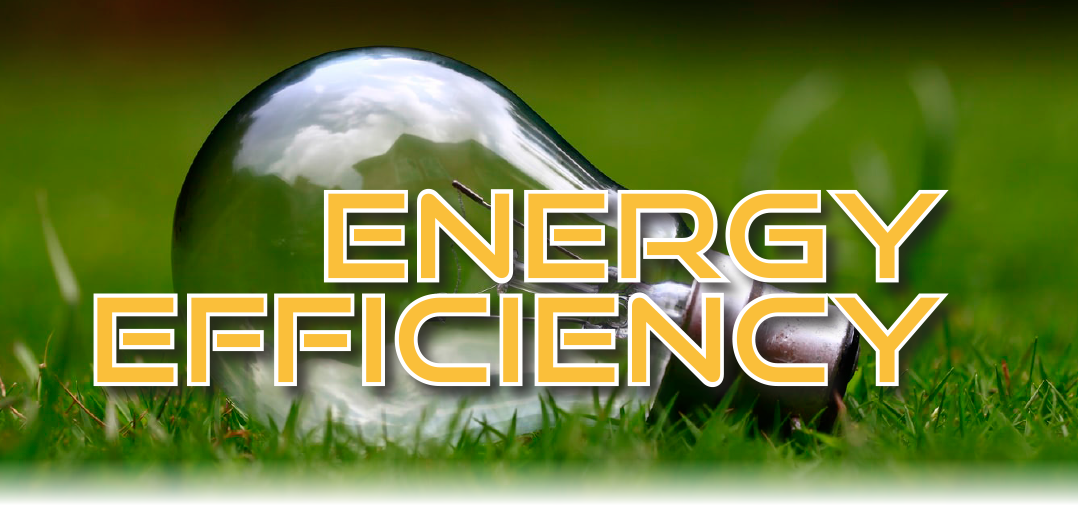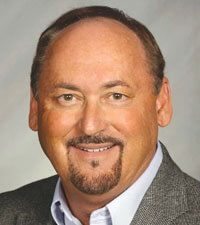There’s no question that Americans are hooked on practices that use a flabbergasting amount of energy every day. In fact, according to the U.S. Energy Information Administration (EIA), electricity accounted for 41% of household end-use energy consumption in 2019, while natural gas represented 44%, followed by liquefied petroleum gas, mostly propane. Space heating and air conditioning account for about 51% of annual seasonal household energy consumption, while water heating, lighting and refrigeration represent about 27% of total home energy use, and the remainder is used for things such as televisions, cooking appliances, washers and dryer, and electronics like computers, tablets, smartphones, video-game consoles, and internet streaming devices.
When it comes to commercial buildings—including offices, hospitals, food establishments, schools, police stations, churches, warehouses, hotels, and shopping malls—electricity and natural gas are the most common energy sources. Different commercial activities have unique energy needs but, as a whole, space heating accounts for about 25% of total energy use in commercial buildings, the EIA reports. Of commercial buildings, mercantile and service buildings use the most total energy. District energy services generally use fossil fuels, including coal, natural gas, or fuel oil, while some use renewable sources of energy like biomass, geothermal, solar, and wind energy.
Incentives for Efficiency
Lincoln Electric System’s (LES, www.les.com) Sustainable Energy Program (SEP) provides financial incentives for residential, small business, and large commercial and industrial customers to encourage the adoption of energy-efficient appliances, equipment, and other measures. Incentives are available for the sealing and insulating of homes with relatively no existing attic or wall insulation, heat-pump water heaters, high-efficiency heat pumps, and air conditioning. Business customers are offered incentives for indoor LED lighting, high-efficiency air conditioning, heat pumps and chillers, and a variety of other industrial measures.
“Energy-efficiency replacements not only enable lower monthly electric bills, but they also contribute to enhanced comfort, productivity, and a reduction in greenhouse-gas emissions,” said LES Manager of Energy Services Marc Shkolnick. “Since launching in 2009, the SEP has provided in excess of $25 million to support more than 17,000 customer projects. Projected annual energy savings of 134-megawatt hours is equivalent to the annual electrical use of approximately 20,000 average homes in the community.”
Customers in Lincoln are increasingly participating in programs like SEP, are installing LED lighting for their homes, purchasing Internet-connect thermostats to better monitor and operate cooling and heating equipment, and are purchasing more Energy Star-rated appliances. The combined impacts of increased energy-efficiency standards and codes have flattened per-capita energy use over the last five to 10 years.
“Because cooling and heating comprise about 50% of a home or business’s energy consumption, focusing on reducing wasted energy in this area is typically most impactful,” Marc said. “In many cases, thermal-energy loss due to cracks and penetrations in a home or commercial building’s walls, ceiling, and window frames are the most noteworthy places to start. Sealing the home or building envelope can reduce the run time of space conditioning equipment and create a more comfortable environment.”
A proper roofing system, including the right insulation and ventilation, make a tremendous impact on the efficiency and climate control of your home. The family-owned Neemann & Sons (neemannandsons.com) of Lincoln can help you accomplish just that—and more. They recently added Halo Lights to their lineup of innovative, energy-saving efforts. Not only can you show off your Christmas spirit with lights for the season, but these lights serve up a fantastic, new permanent solution to all of your outdoor lighting needs.
“We install blown-in insulation, proper ventilation, energy-efficient windows, and LED Halo Lights, all of which will help any homeowner achieve lower utility bills and feel good about contributing to energy conservation,” said Terry Neemann.
Tint Your Way to Savings!
You know that energy-efficient windows can save energy and money, but did you know that tinting your home and business windows can add another layer of savings, comfort, and employee productivity? It’s true, and Pro-Tint (www.pro-tint.net) is where you want to go to have it done. With more than 45 years of industry experience, you can count on them to install window tinting solutions with expertise and confidence, all toward protecting your investment and increasing your comfort, privacy, and safety.
“It might surprise you how many options are available for window tinting,” said Pro-Tint Owner Kristie Strahm. “They include sun control window films, which prevent fading and glare, block heat and harmful UV rays, add years to the life of your furniture, and extend the life of your cooling system. Pro-Tint also offers Safety and Security Film tints to protect your home or business against flying glass shards, at the same time protecting you against break-ins and blasts.”
Yet another option is Dual Reflective (DR) Window Film, which is ideal for both commercial and residential window applications where reducing hotspots, increasing occupant comfort and productivity, and conserving energy are equally important. DR Interior Window Films deliver excellent solar performance and are the ticket for maintaining a great view to the outside. They provide: more than 99% UV block to limit fading and sun damage; an excellent level of heat rejection to reduce energy required for cooling; outstanding glare control for enhanced occupant comfort and productivity!
“If you operate a business, you might also be interested in Pro-Tint’s decorative film finishes,” Kristie added. “These decorative finishes add an interior aesthetic touch, while providing privacy and controlling light. Whatever option you choose, tinting your window is sure to save money on your energy bills and do help you do your part for the environment.”
Stepping it Up!
Upgrading to energy-efficient appliances and equipment in our homes can go a long way to helping lower total energy use. John Henry’s Plumbing, Heating & Air Conditioning (www.jhlincoln.com) sells, installs, and services high-efficient residential and commercial heating and air equipment for folks in the region. Lincoln homeowners are increasingly installing furnaces that are run 90% or more on gas and are taking full advantage of local utility-company rebates, which make higher-efficient outdoor units more affordable.
“Our customers enjoy some of the highest-efficient, money-saving home heating and cooling systems available,” said John Henry’s Comfort Consultant Jon Becker. “Our highly trained technicians aid in keeping these units running at top efficiency, and 2020 saw even more homeowners taking advantage of lower energy use through two-state and variable-capacity heating and cooling components. The heating and cooling industry is always pushing forward toward new, more efficient technologies, and it appears that American homeowner and business owners are welcoming these innovations.”
According to Jon, one of the biggest culprits of energy loss in homes and commercial businesses is people foregoing basic cleaning and maintenance of their heating and cooling systems. When a furnace filter clogs, the unit must work much harder to accomplish the same goal of keeping us comfortable. Months on end dealing with a clogged filter can add up big time in dollars lost, besides being extremely wasteful. You might ask, though, ‘Will the upgrades pay for themselves over time?’
“Absolutely,” Jon said. “We Nebraskans have the good fortune of experiencing all four seasons. High-efficient products allow us to save money during our hot, muggy summers, as well as our long, dry, cold winters. We even get to use our furnace and AC sometimes in the same day. This extreme use allows for a quicker return on our investment!”
Custom Cooling & Heating, Inc. (www.customcooling.net) in Lincoln is another superb choice for your heating and cooling efficiency needs. With more than 50 years of experience, they have the professional skills to keep your systems running smoothly and efficiently. Their trained staff can provide you with system analysis, design, and installation. Custom Cooling & Heating provides services and products including heating and cooling, air purification, filtration, geothermal, humidity control, mini-split, and efficient thermostats. Their company is large enough to offer you timely service and small enough to give you the personal service you deserve.
Are You Missing Out?
The importance of upgrading insulation and ventilation in your attic cannot be overrated. Attic Energy Efficiency (www.facebook.com/atticenergyefficiency) focuses solely on saving energy and saving you money by doing just that. Owner Rex Schroder uses mainly cellulose insulation, which is superior to fiberglass, and he has developed specific techniques over the years that will make your attic more efficient and your home more comfortable. Cellulose insulation is about 80% recycled product and provides all-natural fire retardant—and doubling your attic insulation can save you anywhere from 25% to 40% on your heating and cooling bills.
“If you have never upgraded your attic insulation, you are missing out on savings and comfortability,” Rex said. “The return on your investments in attic upgrades is usually less than three years, but savings start immediately! We believe that anyone can do insulation work, but not everybody can make the total attic package go above and beyond. That’s where we come in.”
Attic Energy Efficiency offers attic ventilation analysis and upgrades, as well as other energy-efficient techniques to help transform uncomfortable, inefficient homes into comfortable and efficient ones. Rex adheres to a high standard of integrity and honesty and says he will never sell anything to a customer that he does not absolutely believe they need. The company guarantees to fix your home correctly and do it right the first time, no matter how small or big the job!
Safety, Comfort, and Energy Savings
In line with protecting both humans and energy supplies, equipment manufacturers are making a host of new products that can improve your home’s comfort AND help you operate it more efficiently. From the most state-of-the-art thermostats and zoning systems to whole-house air-cleaning, humidification, and dehumidification systems, security and video systems, the marketplace is geared to making homes more energy-efficient and secure. Engineered Controls (engineeredcontrols.com) is on the cutting edge when it comes to building systems that do it all.
“To combat indoor air problems, Engineered Controls offers demand control ventilation software that will automatically adjust heating and cooling systems to introduce higher levels of outdoor air only when occupancy levels of building contaminants are at a high level,” said Engineered Controls President and CEO Pat Killeen. “Equally important is that features like demand control ventilation only induce more outdoor air when required, thus allowing building owners to maintain optimum levels of indoor air quality and, at the same time, obtain substantial energy cost savings while increasing the comfort and productivity of the employees or tenants.”
Engineered Controls recently finished a $90 million expansion project at the Metropolitan Community College Fort Omaha campus, where they installed a Honeywell building management system that includes monitors and controls for all the traditional mechanical sub-systems like air-handling units, chillers, and pumps. In addition, the building automation system integrates electrical metering equipment, BTU metering, emergency generators, and lighting systems. Engineered Controls also featured custom energy or utility dashboards to assist students and faculty in visualizing energy consumption on campus, plus deliver weather data and energy-conservation suggestions about how to improve the building’s energy performance.
Streamline Your Way to Savings
The Streamline Energy Solutions (streamlineenergysolutions.com) team of energy-efficiency specialists operates with the goal of saving energy—and saving you money. They pride themselves on being a one-stop-shop for all of your home energy-efficiency needs, providing various insulation and weatherization services, coupled with a crucial blower door test, to create immediate improvements in how your home uses energy.
“One of the biggest things we recommend to create the maximum impact when someone wants to insulate their home is to air seal it,” said Streamline Co-founder and BPI-Certified Auditor Jen Keller. “We’ll locate all the accessible crevices in your attic, including around your fixtures and top plates and seal them so to prevent conditioned air from leaking into the attic space. That preps the attic for us to insulate with blown-in fiberglass. We prefer this product over cellulose because it doesn’t settle over time, does not absorb moisture, and is a lot cleaner product. Of course, the baffles we install in an attic are a crucial step in the process, too, because they keep the insulation from blocking air flow through your soffit vents and provide necessary ventilation.”
Streamline uses CertainTeed Insulsafe SP blown-in insulation not only because it doesn’t settle but also because it provides better coverage, excellent sound control, lasts for the life of your home to reduce long-term energy demand and costs; is environmentally sustainable and formaldehyde-free; and comes with a limited lifetime warranty. This isn’t your typical itchy fiberglass. It is actually soft to the touch! Another fabulous offering from Streamline Energy Solutions that is not universal to all insulation companies is a blower door test because not everyone is BPI (Building Performance Institute)-certified to administer them.
“It depressurizes—or creates a vacuum—where it is pushing as much air as possible, then a manometer measures the number of cubic feet of air per minute that goes OUT of your home,” Jen explained. “We complete a blower door pre-test before air sealing and insulating, then retest afterward to show the immediate results. The increased efficiency adds to the value of your home, increases your comfort and, importantly, improves the air quality in your home, so it’s also great for people with allergies!”
Streamline is proud to be a registered contractor for the LES (Lincoln Electric System) Sustainable Energy Program to engage a rebate for achieving increased efficiency through our practices, and it immediately comes off of homeowners’ bills. They also own Halo Custom Lighting, which can help you light up your home with energy-saving LED lights for the holidays—or all year long. This sister business has become tremendously popular—including sales and installations by Neemann and Sons in Lincoln, with versatile and fully customizable lighting options for your home.
Maintenance Matters
If your heating or air-conditioning loses efficiency from a lack of maintenance, utility bills can skyrocket. Biggerstaff Plumbing and Heating, Inc. (www.biggerstaffs.com) offered some advice to home or commercial building owners to protect themselves from high costs—and even save themselves 30%-50% off of heating and cooling bills. Those include ensuring that your filters and condensate lines are checked regularly; clean filters at regular intervals are a must. Further, remember the two major energy burners in commercial office buildings—the lights and the heating and cooling systems. More efficient light fixtures using LED technology will save energy and money, and for heating and cooling, high-efficiency equipment with modulating/inverter technology is also available.
Attaining responsible energy efficiency in our homes and buildings is something to which each of us can contribute. Fortunately, Lincoln is has professionals who can help you do your part, attaining a balance between sustainability and your personal health and comfort.








